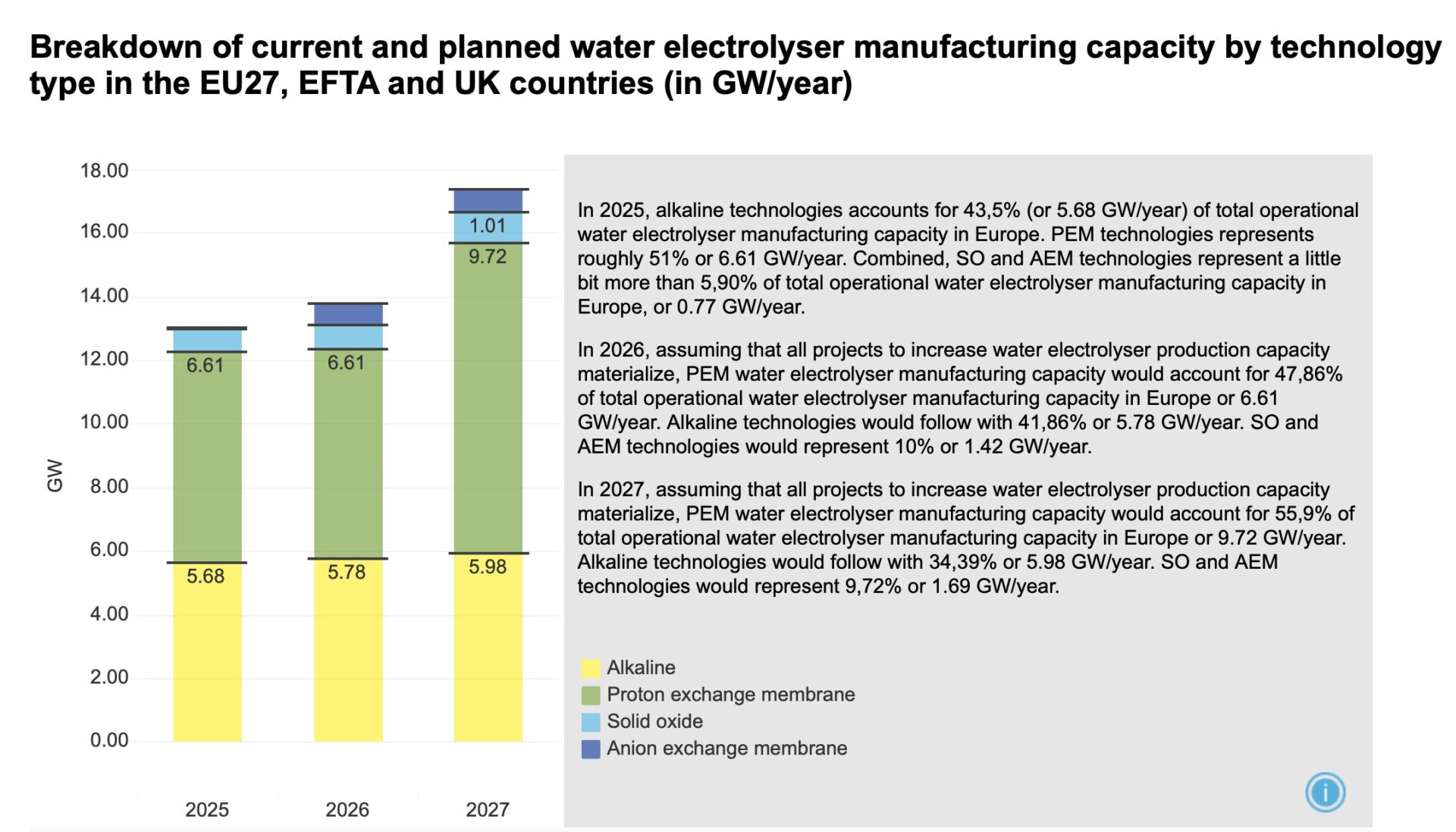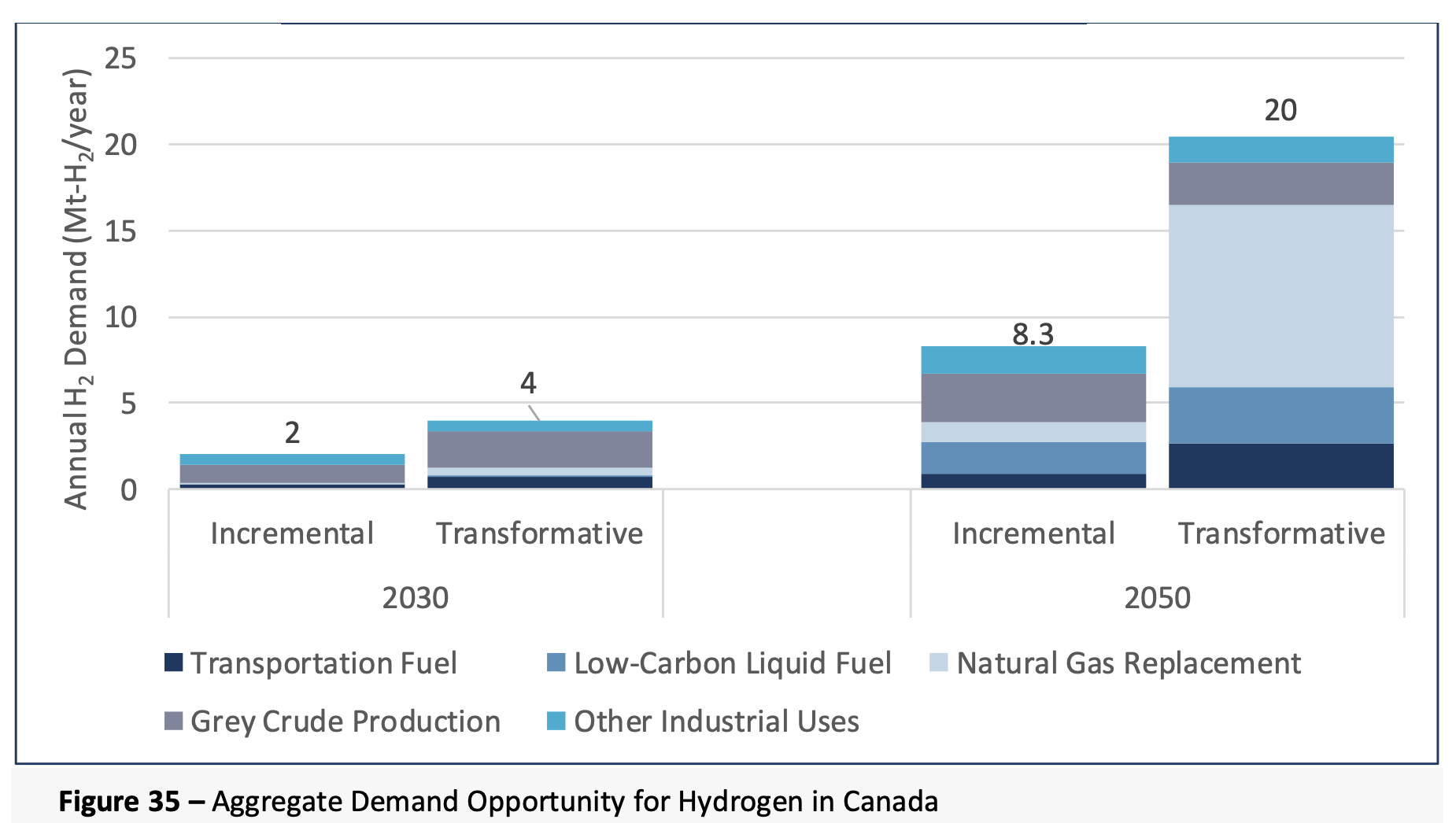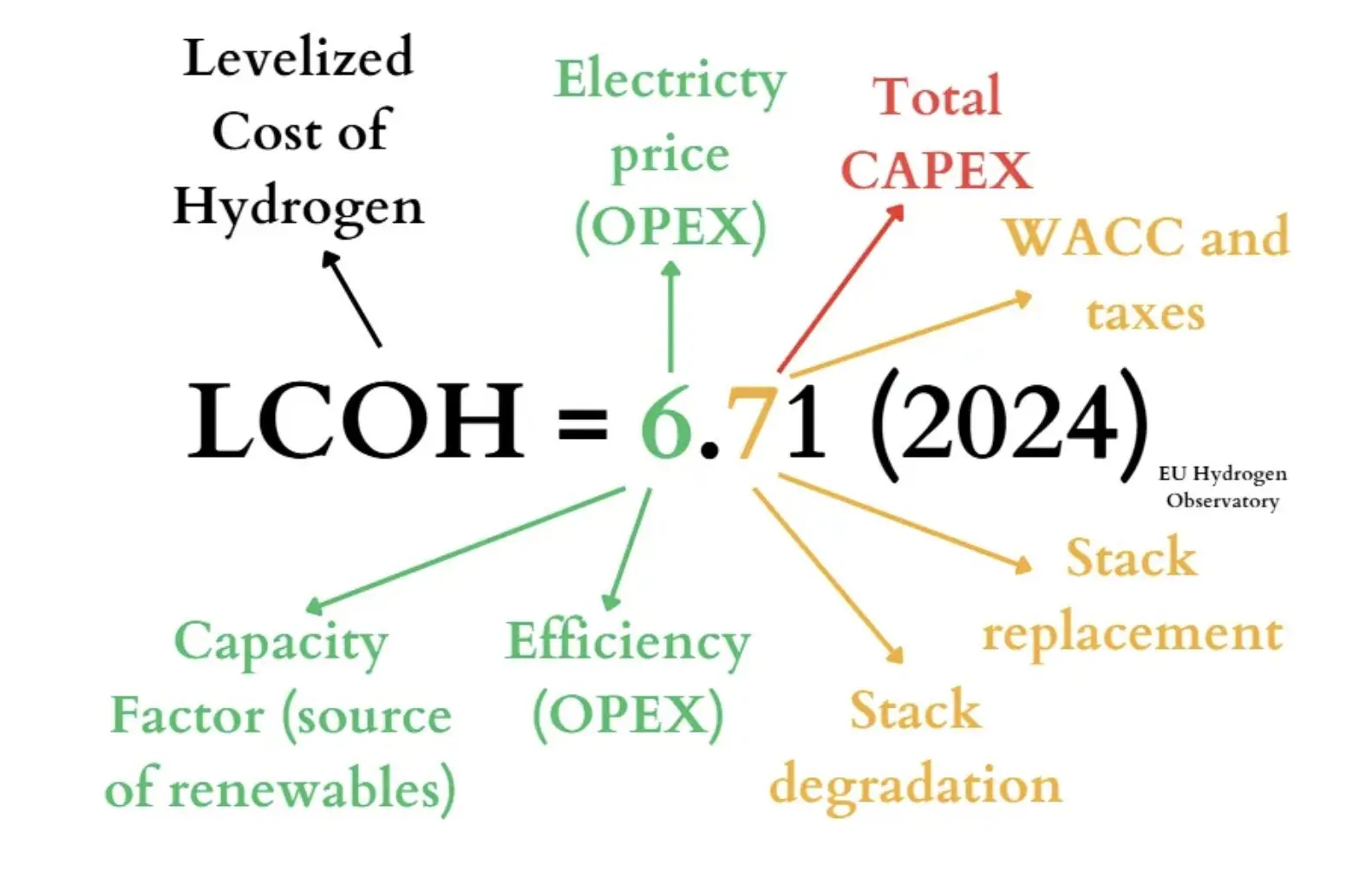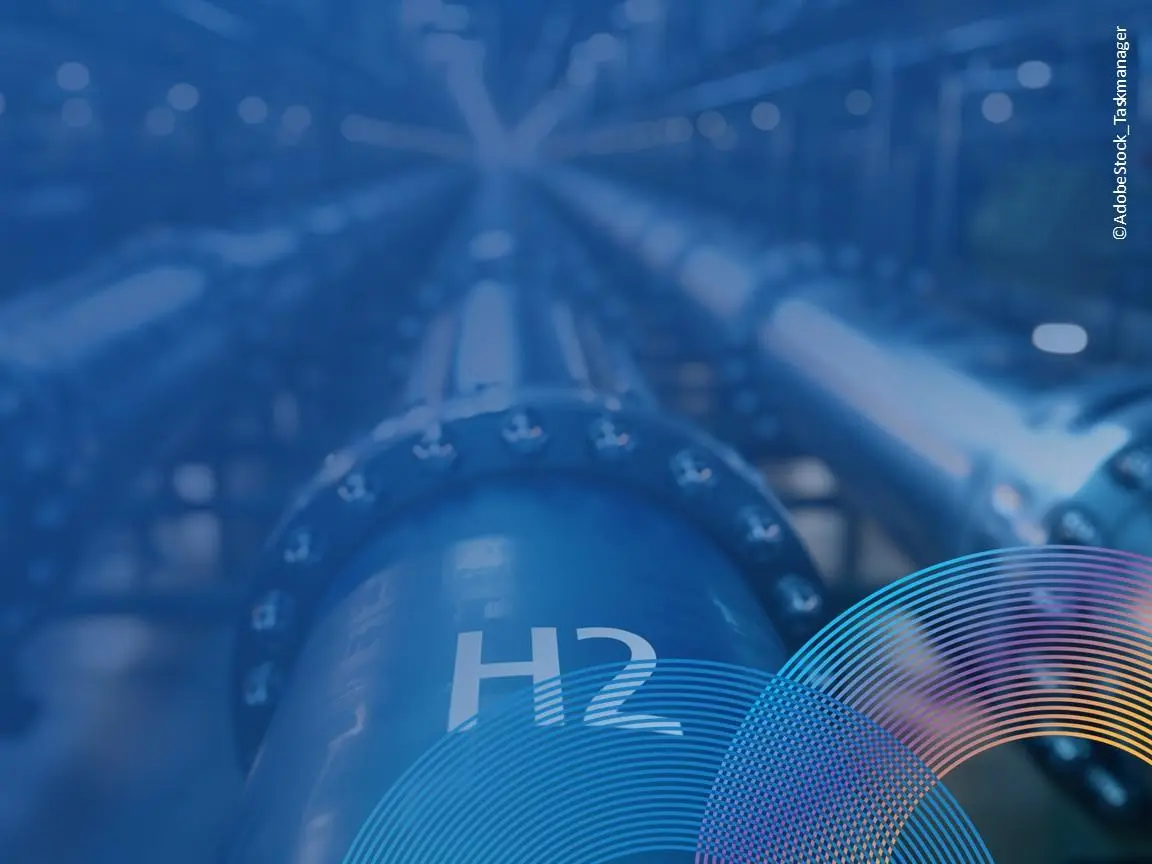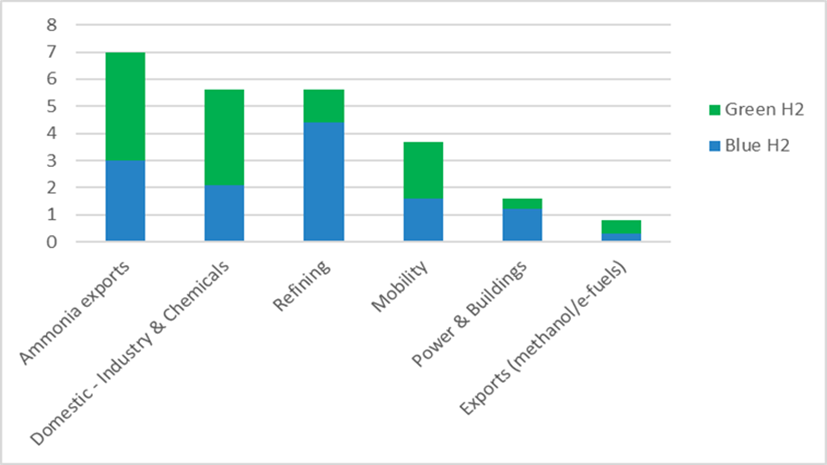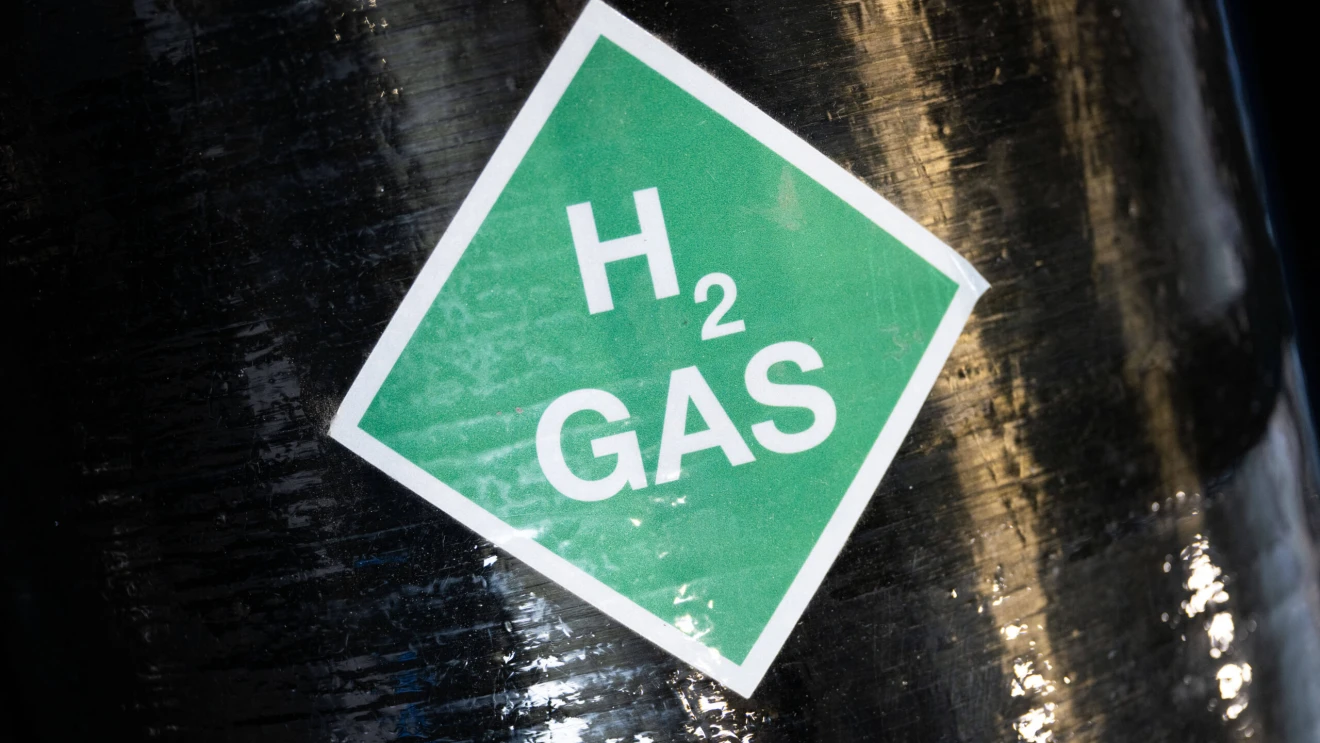

Green hydrogen presents an important opportunity for Ireland. As a zero-emission alternative to fossil fuel usage across the economy, it could play a major role in decarbonisation.
And thanks to favourable production economics, an Irish green hydrogen industry could compete with contemporaries across Europe, fuelling not only Ireland’s transition to Net Zero, but that of Europe as a whole.
Ireland could produce the cheapest green hydrogen in Europe by 2030, new analysis by Aurora Energy Research finds. Production under optimal conditions would result in a levelised cost of €3.50/kgH2 (real 2021) in 2030, 8% lower than optimal production costs in Spain and 35% lower than in Germany, Aurora’s modelling shows.
Ireland’s competitive advantage stems from its high wind speeds, particularly in the west, compared to other European countries, and rising congestion within the electricity transmission system.
Ireland’s targeted green hydrogen production capacity far exceeds Aurora’s projections for domestic demand.
The government aims to install 2GW of offshore wind generation connected to electrolysers by 2030, which could produce up to 138kt of green hydrogen annually, Aurora finds. Developers could also produce green hydrogen from surplus renewable power that would otherwise be curtailed.4
Irish hydrogen demand rises to 33kt in 2030 under Aurora’s base case forecast, from 11kt in 2023. The industrial sector is projected to account for the highest share of consumption, followed by transport.
Production could also be exported: the optimal levelised cost of green hydrogen imports shipped from Cork to Germany in 2030 would be 13% lower than optimal domestic production costs in Germany, Aurora’s modelling shows.
Despite the cost advantages, robust policy support is needed to unleash Ireland’s green hydrogen potential. The optimal cost of producing green hydrogen in Ireland in 2030 is equivalent to €89/MWh(th), 82% higher than Aurora’s forecast gas price5 in 2030.
A lack of action to reduce this premium could prevent a market from developing. Introducing government-backed hydrogen purchase agreements that would pay for the cost premium could incentivise production, whilst capital expenditure relief on investments in electrolysers could further reduce the costs to be recovered per kilogram of hydrogen.
Source: Aurora Energy Research

